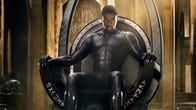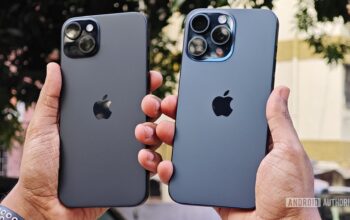Black History Month, which comes around every February in the US, is a time to celebrate the stories and achievements of Black Americans, reflect on the past and work toward a future free of oppression and systemic racism.
To mark Black History Month, the CNET team has come up with a list of movies and TV shows that explore the triumphs and challenges of the Black experience. This is, of course, just a sampling of the vast range of content available on Black life and history.
Where applicable, the shows and movies below are listed at subscription services where they’re available to stream at no extra charge. Otherwise, we’ve linked to Amazon, where they can be rented or purchased, but those picks should also be available at vendors like Vudu, iTunes and the like.
Got your own picks? Please share them in the comments. Ready? Here we go.

 \n ","topic":"","ttag":"","variant":"","viewguid":"","event":"listicle|image|1","correlationId":"","_destCat":"https:\/\/www.hulu.com\/movie\/summer-of-soul-6f2160ed-eaa2-462a-b495-f61f4f31714d","productName":"Summer of Soul","formatType":"IMAGE","location":"LIST","position":1,"sku":"","dwLinkTag":"article-body|listicle|image","selector":"#article-body #listicle-3bbfa0c9-6934-4223-ae47-4eafb6f88e95 .itemImage"}}” rel=”noopener nofollow” target=”_blank”>
\n ","topic":"","ttag":"","variant":"","viewguid":"","event":"listicle|image|1","correlationId":"","_destCat":"https:\/\/www.hulu.com\/movie\/summer-of-soul-6f2160ed-eaa2-462a-b495-f61f4f31714d","productName":"Summer of Soul","formatType":"IMAGE","location":"LIST","position":1,"sku":"","dwLinkTag":"article-body|listicle|image","selector":"#article-body #listicle-3bbfa0c9-6934-4223-ae47-4eafb6f88e95 .itemImage"}}” rel=”noopener nofollow” target=”_blank”>
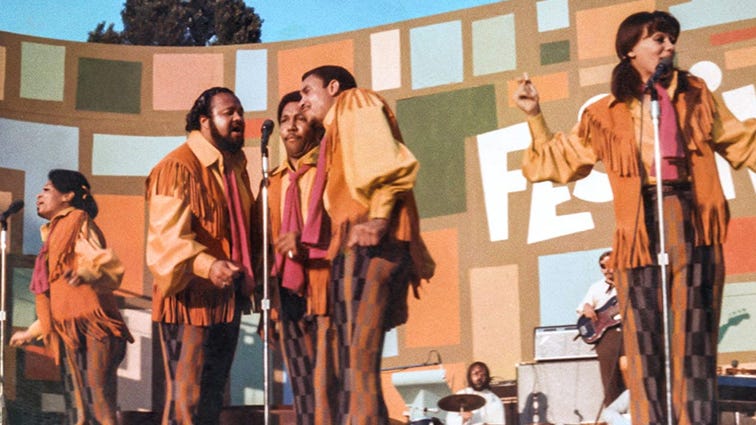

Fox Searchlight
In the summer of 1969, a music festival in New York featuring legendary artists attracted hundreds of thousands of people. Nope, not Woodstock. I’m talking about the Harlem Cultural Festival, held that same summer over six weekends. It was a joyous celebration of Black culture. Around 40 hours of footage were captured, but those recordings — largely unseen — sat in a basement for nearly 50 years. Thanks to Ahmir “Questlove” Thompson, that footage became the heart of the 2021 documentary Summer of Soul.
Among the glorious performances are those by Nina Simone, Stevie Wonder, Gladys Knight and the Pips, Sly and the Family Stone, The Fifth Dimension, and Mahalia Jackson and Mavis Staples. In his directorial debut, Thompson weaves together the live performances with moving interviews of musicians and concertgoers reflecting on that pivotal summer, amid the rise of Black consciousness and the Black Power movement, and only a year after the assassination of Martin Luther King Jr.
News footage also helps put into perspective other historical events, including the moon landing, centering what it meant to be a Black American in 1969. How lucky we are this piece of history is no longer buried. Fans clamoring for a soundtrack have finally gotten their wish: It arrives Jan. 28.
–Anne Dujmovic

 \n ","topic":"","ttag":"","variant":"","viewguid":"","event":"listicle|image|2","correlationId":"","_destCat":"https:\/\/www.netflix.com\/title\/81034518","productName":"High on the Hog: How African American Cuisine Transformed America","formatType":"IMAGE","location":"LIST","position":2,"sku":"","dwLinkTag":"article-body|listicle|image","selector":"#article-body #listicle-3d9fa913-a743-4ed0-a1bd-a324f11a78fa .itemImage"}}” rel=”noopener nofollow” target=”_blank”>
\n ","topic":"","ttag":"","variant":"","viewguid":"","event":"listicle|image|2","correlationId":"","_destCat":"https:\/\/www.netflix.com\/title\/81034518","productName":"High on the Hog: How African American Cuisine Transformed America","formatType":"IMAGE","location":"LIST","position":2,"sku":"","dwLinkTag":"article-body|listicle|image","selector":"#article-body #listicle-3d9fa913-a743-4ed0-a1bd-a324f11a78fa .itemImage"}}” rel=”noopener nofollow” target=”_blank”>


Netflix
Not many shows spotlight Black Americans’ contributions to the culinary world, but Netflix docuseries High on the Hog does an exceptional job, taking you backward and forward in time through food — and culture. Through four episodes, host Stephen Satterfield travels to Benin and around the United States, connecting with, savoring and learning about Black chefs from the past and present. Check it out and be wowed by Gullah traditions, a Wall Street oyster empire in the 1800s, and the 200-year-old origins of mac and cheese in the US.
–Kourtnee Jackson

 \n ","topic":"","ttag":"","variant":"","viewguid":"","event":"listicle|image|3","correlationId":"","_destCat":"https:\/\/www.disneyplus.com\/movies\/black-is-king\/7daDvpFdBXPs","productName":"Black Is King","formatType":"IMAGE","location":"LIST","position":3,"sku":"","dwLinkTag":"article-body|listicle|image","selector":"#article-body #listicle-6400a66d-3fd9-40d6-aa37-17c44504ea78 .itemImage"}}” rel=”noopener nofollow” target=”_blank”>
\n ","topic":"","ttag":"","variant":"","viewguid":"","event":"listicle|image|3","correlationId":"","_destCat":"https:\/\/www.disneyplus.com\/movies\/black-is-king\/7daDvpFdBXPs","productName":"Black Is King","formatType":"IMAGE","location":"LIST","position":3,"sku":"","dwLinkTag":"article-body|listicle|image","selector":"#article-body #listicle-6400a66d-3fd9-40d6-aa37-17c44504ea78 .itemImage"}}” rel=”noopener nofollow” target=”_blank”>
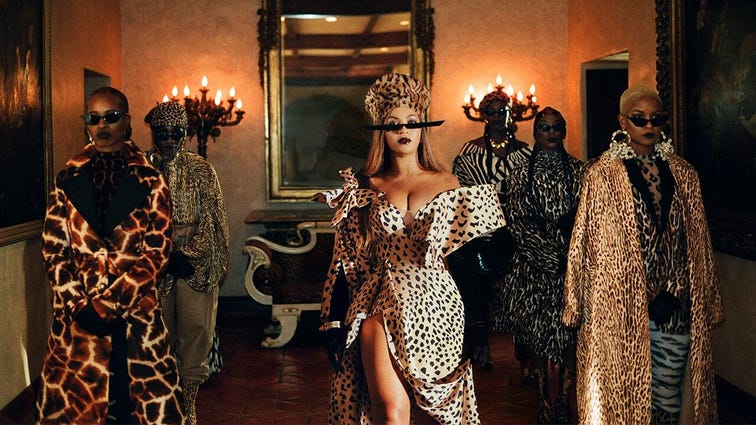

Disney
Nearly single-handedly leading the rise of the “visual album” (The Beatles started it all way back in the ’60s), Beyoncé and her Black Is King meld together stunning visuals and music from the tie-in album she curated for The Lion King. A “love letter to Africa,” the film’s story is told with the help of some of today’s outstanding black artists, including Beyoncé, who directs as well.
With unbelievable cinematography, a score featuring traditional African music, instantly iconic costume design and powerful cultural themes, every second of this personal work of art needs to be glued to your eyeballs.
–Jennifer Bisset

 \n ","topic":"","ttag":"","variant":"","viewguid":"","event":"listicle|image|4","correlationId":"","_destCat":"https:\/\/www.hulu.com\/movie\/minding-the-gap-efcd9be9-9541-46b4-abbc-dd8b0606b304","productName":"Minding the Gap","formatType":"IMAGE","location":"LIST","position":4,"sku":"","dwLinkTag":"article-body|listicle|image","selector":"#article-body #listicle-c712d250-5648-4020-b632-833811600716 .itemImage"}}” rel=”noopener nofollow” target=”_blank”>
\n ","topic":"","ttag":"","variant":"","viewguid":"","event":"listicle|image|4","correlationId":"","_destCat":"https:\/\/www.hulu.com\/movie\/minding-the-gap-efcd9be9-9541-46b4-abbc-dd8b0606b304","productName":"Minding the Gap","formatType":"IMAGE","location":"LIST","position":4,"sku":"","dwLinkTag":"article-body|listicle|image","selector":"#article-body #listicle-c712d250-5648-4020-b632-833811600716 .itemImage"}}” rel=”noopener nofollow” target=”_blank”>
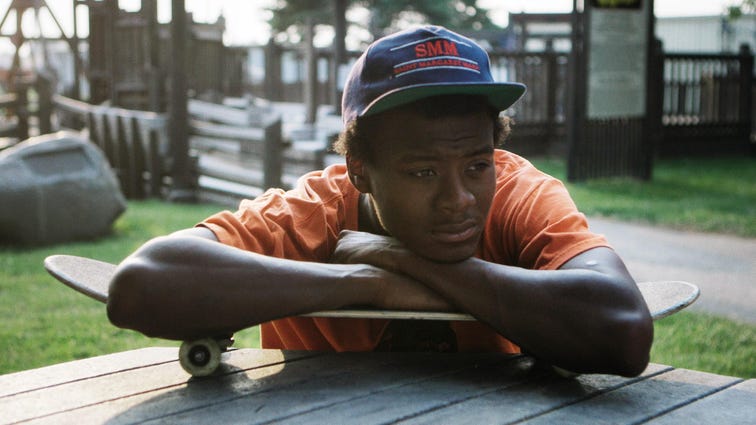

Hulu
On the surface, this extraordinary documentary from Bing Liu is a love letter to skateboarding. But scratch a little deeper and you’ll find Minding the Gap’s vast depths. A rich and thoughtful tale of young people growing up in 21st century America, it explores domestic trauma, systemic racism and classism. It resonates beyond the skate park.
–Jennifer Bisset

 \n ","topic":"","ttag":"","variant":"","viewguid":"","event":"listicle|image|5","correlationId":"","_destCat":"https:\/\/www.amazon.com\/Wattstax-Richard-Roundtree\/dp\/B000MPM3FI\/","productName":"Wattstax","formatType":"IMAGE","location":"LIST","position":5,"sku":"","dwLinkTag":"article-body|listicle|image","selector":"#article-body #listicle-a6adb7cf-764e-4202-8a99-2022078f94fd .itemImage"}}” rel=”noopener nofollow” target=”_blank”>
\n ","topic":"","ttag":"","variant":"","viewguid":"","event":"listicle|image|5","correlationId":"","_destCat":"https:\/\/www.amazon.com\/Wattstax-Richard-Roundtree\/dp\/B000MPM3FI\/","productName":"Wattstax","formatType":"IMAGE","location":"LIST","position":5,"sku":"","dwLinkTag":"article-body|listicle|image","selector":"#article-body #listicle-a6adb7cf-764e-4202-8a99-2022078f94fd .itemImage"}}” rel=”noopener nofollow” target=”_blank”>
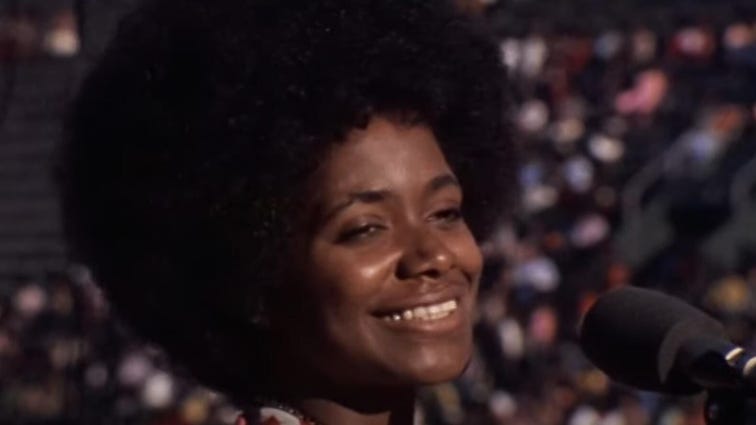

Video screenshot by Leslie Katz/CNET
A bunch of concert films on HBO Max provide tuneful snapshots of the 20th century’s iconic musical movements. One of them, Wattstax, is a funky fresh film of a 1972 “Black Woodstock” in LA featuring the soul, funk and jazz artists of Stax Records, such as Isaac Hayes, interspersed with introductions by Richard Pryor.
–Richard Trenholm

 \n ","topic":"","ttag":"","variant":"","viewguid":"","event":"listicle|image|6","correlationId":"","_destCat":"https:\/\/www.netflix.com\/title\/70308063","productName":"What happened, Miss Simone?","formatType":"IMAGE","location":"LIST","position":6,"sku":"","dwLinkTag":"article-body|listicle|image","selector":"#article-body #listicle-d82dce20-ed2b-4c50-bfe7-0a07a9b99abf .itemImage"}}” rel=”noopener nofollow” target=”_blank”>
\n ","topic":"","ttag":"","variant":"","viewguid":"","event":"listicle|image|6","correlationId":"","_destCat":"https:\/\/www.netflix.com\/title\/70308063","productName":"What happened, Miss Simone?","formatType":"IMAGE","location":"LIST","position":6,"sku":"","dwLinkTag":"article-body|listicle|image","selector":"#article-body #listicle-d82dce20-ed2b-4c50-bfe7-0a07a9b99abf .itemImage"}}” rel=”noopener nofollow” target=”_blank”>
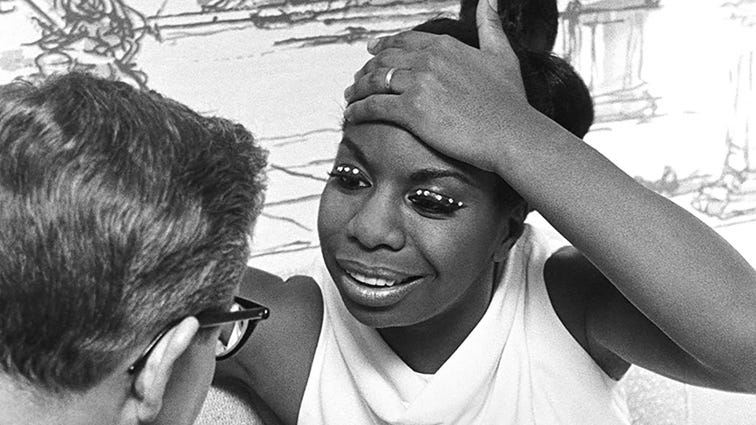

Sundance Institute
Miss Simone, goddamn. If you’ve never heard of one of the 20th century’s most incredible recording artists, this 2015 documentary offers an intimate window into Nina Simone, from her childhood as a classical piano prodigy in the Jim Crow South to a legendary blues singer/musician electrifying the civil rights movement and Black power movement. The documentary bursts with rare archival footage and recordings, giving Simone’s political worldview, musical genius and personal battles an unrivaled authenticity. An artist is never born in a vacuum, and this film proves that society is the generator of both creativity and torment.
–Laura Michelle Davis

 \n ","topic":"","ttag":"","variant":"","viewguid":"","event":"listicle|image|7","correlationId":"","_destCat":"https:\/\/www.netflix.com\/search?q=becoming&jbv=81122487","productName":"Becoming","formatType":"IMAGE","location":"LIST","position":7,"sku":"","dwLinkTag":"article-body|listicle|image","selector":"#article-body #listicle-04133955-39cb-49fd-9314-a92be549ad24 .itemImage"}}” rel=”noopener nofollow” target=”_blank”>
\n ","topic":"","ttag":"","variant":"","viewguid":"","event":"listicle|image|7","correlationId":"","_destCat":"https:\/\/www.netflix.com\/search?q=becoming&jbv=81122487","productName":"Becoming","formatType":"IMAGE","location":"LIST","position":7,"sku":"","dwLinkTag":"article-body|listicle|image","selector":"#article-body #listicle-04133955-39cb-49fd-9314-a92be549ad24 .itemImage"}}” rel=”noopener nofollow” target=”_blank”>


Netflix
Anyone who’s a fan of Michelle Obama should have already read her memoir and watched the companion documentary of the same name. In case you haven’t seen it, though, I can tell you it’s everything you would want it to be and more. It’s a love letter to and from the former first lady.
Becoming follows the sold-out national book tour for her 2018 memoir, as she interacts with adoring fans, with young women aspiring to follow in her footsteps and with family members who let loose around her. You visit her childhood home and see how she overcame obstacles, met a young man named Barack and grew into the amazing woman she is.
I’ve (obviously) revered Michelle Obama ever since she stepped onto the national scene. But the documentary gave me a chance to get to know her as a person and to enjoy her personality, style and determination anew.
–Natalie Weinstein

 \n ","topic":"","ttag":"","variant":"","viewguid":"","event":"listicle|image|8","correlationId":"","_destCat":"https:\/\/www.netflix.com\/search?q=i am not your negro&jbv=80144402","productName":"I Am Not Your Negro","formatType":"IMAGE","location":"LIST","position":8,"sku":"","dwLinkTag":"article-body|listicle|image","selector":"#article-body #listicle-51f84151-438f-4a96-88d4-8c655b6537ea .itemImage"}}” rel=”noopener nofollow” target=”_blank”>
\n ","topic":"","ttag":"","variant":"","viewguid":"","event":"listicle|image|8","correlationId":"","_destCat":"https:\/\/www.netflix.com\/search?q=i am not your negro&jbv=80144402","productName":"I Am Not Your Negro","formatType":"IMAGE","location":"LIST","position":8,"sku":"","dwLinkTag":"article-body|listicle|image","selector":"#article-body #listicle-51f84151-438f-4a96-88d4-8c655b6537ea .itemImage"}}” rel=”noopener nofollow” target=”_blank”>
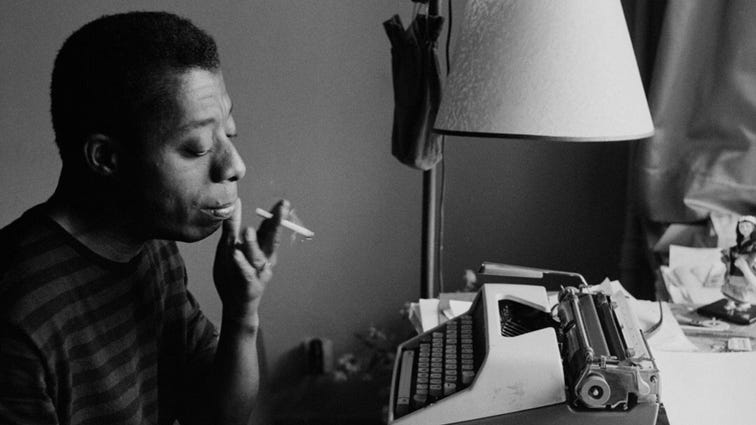

Amazon Studios
This 2016 documentary about author James Baldwin is phenomenal. It’s simply one of the best documentaries I’ve ever seen.
Baldwin was a deep thinker and a powerful speaker who fearlessly exposed racism. His insights into his lived experience as a Black man in America floor me. His devastating observations at the start of the civil rights movement in the 1950s until his death in the 1980s still ring absolutely true today. This is utterly depressing, but it also shows that Baldwin was extraordinarily prescient.
The documentary features archival footage, including the birth of the Black Lives Matter protest movement after the 2014 police killing of Michael Brown in Ferguson, Missouri. But if you didn’t know better, you’d swear the footage came from the Black Lives Matter protests that followed the 2020 police killing of George Floyd in Minneapolis, Minnesota.
That may be why Baldwin’s decades-old insights still feel so current.
–Natalie Weinstein

 \n ","topic":"","ttag":"","variant":"","viewguid":"","event":"listicle|image|9","correlationId":"","_destCat":"https:\/\/www.disneyplus.com\/movies\/hidden-figures\/2xa2YdiOJXQt","productName":"Hidden Figures","formatType":"IMAGE","location":"LIST","position":9,"sku":"","dwLinkTag":"article-body|listicle|image","selector":"#article-body #listicle-71085cf1-edae-4154-88d0-01f039e05da1 .itemImage"}}” rel=”noopener nofollow” target=”_blank”>
\n ","topic":"","ttag":"","variant":"","viewguid":"","event":"listicle|image|9","correlationId":"","_destCat":"https:\/\/www.disneyplus.com\/movies\/hidden-figures\/2xa2YdiOJXQt","productName":"Hidden Figures","formatType":"IMAGE","location":"LIST","position":9,"sku":"","dwLinkTag":"article-body|listicle|image","selector":"#article-body #listicle-71085cf1-edae-4154-88d0-01f039e05da1 .itemImage"}}” rel=”noopener nofollow” target=”_blank”>
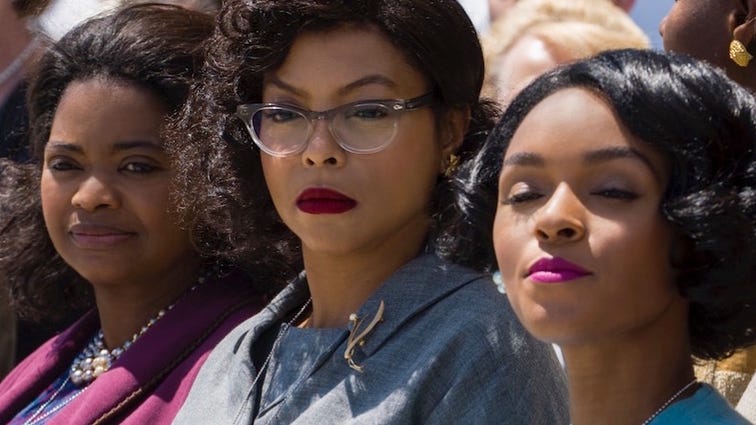

Disney Plus
If you want a true, uplifting story, Hidden Figures ticks all the boxes. The Oscar-nominated biopic follows the Black female mathematicians who were instrumental in helping NASA during the space race. Katherine Johnson, Dorothy Vaughan and Mary Jackson are the names that hopefully you’ll remember after watching, and the three women are brought to life by the unwaveringly excellent performances of Taraji P. Henson, Octavia Spencer and Janelle Monáe.
–Jennifer Bisset

 \n ","topic":"","ttag":"","variant":"","viewguid":"","event":"listicle|image|10","correlationId":"","_destCat":"https:\/\/www.amazon.com\/42-Chadwick-Boseman\/dp\/B00DYQ2PH8\/ref=sr_1_2?dchild=1&keywords=42&qid=1613008815&sr=8-2","productName":"42","formatType":"IMAGE","location":"LIST","position":10,"sku":"","dwLinkTag":"article-body|listicle|image","selector":"#article-body #listicle-bb625e2b-09d1-45d9-be5b-881fec5399e4 .itemImage"}}” rel=”noopener nofollow” target=”_blank”>
\n ","topic":"","ttag":"","variant":"","viewguid":"","event":"listicle|image|10","correlationId":"","_destCat":"https:\/\/www.amazon.com\/42-Chadwick-Boseman\/dp\/B00DYQ2PH8\/ref=sr_1_2?dchild=1&keywords=42&qid=1613008815&sr=8-2","productName":"42","formatType":"IMAGE","location":"LIST","position":10,"sku":"","dwLinkTag":"article-body|listicle|image","selector":"#article-body #listicle-bb625e2b-09d1-45d9-be5b-881fec5399e4 .itemImage"}}” rel=”noopener nofollow” target=”_blank”>


Video screenshot by Leslie Katz/CNET
This biographical film details Jackie Robinson’s emergence as the first Black player in Major League Baseball. The late Chadwick Boseman may be known for Black Panther, but this may’ve been his most important role.
–Andy Altman

 \n ","topic":"","ttag":"","variant":"","viewguid":"","event":"listicle|image|11","correlationId":"","_destCat":"https:\/\/www.disneyplus.com\/movies\/queen-of-katwe\/6FtfjP77HPmS","productName":"Queen of Katwe","formatType":"IMAGE","location":"LIST","position":11,"sku":"","dwLinkTag":"article-body|listicle|image","selector":"#article-body #listicle-b9150ba8-4ba7-4220-b37a-0d3c0cb83916 .itemImage"}}” rel=”noopener nofollow” target=”_blank”>
\n ","topic":"","ttag":"","variant":"","viewguid":"","event":"listicle|image|11","correlationId":"","_destCat":"https:\/\/www.disneyplus.com\/movies\/queen-of-katwe\/6FtfjP77HPmS","productName":"Queen of Katwe","formatType":"IMAGE","location":"LIST","position":11,"sku":"","dwLinkTag":"article-body|listicle|image","selector":"#article-body #listicle-b9150ba8-4ba7-4220-b37a-0d3c0cb83916 .itemImage"}}” rel=”noopener nofollow” target=”_blank”>
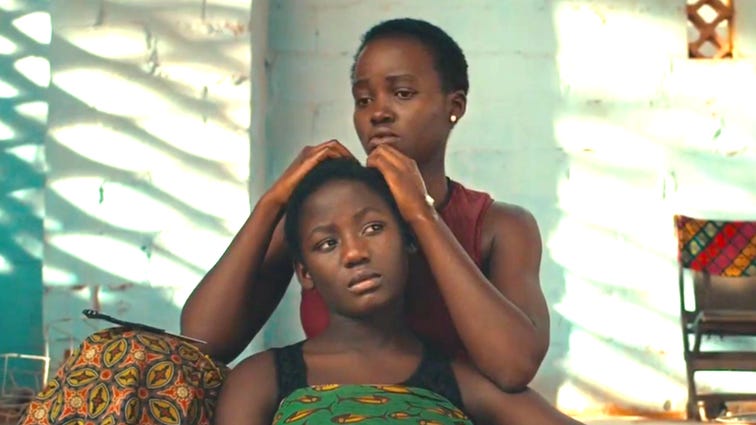

Disney Plus
If you’re in the mood for a feel-good movie with a story of triumph over adversity, Queen of Katwe will more than satisfy. The best part is that it’s based on a true story about the first titled female chess player in Ugandan chess history, Phiona Mutesi. Life in the Katwe slum is a constant struggle, but everything changes when she learns how to play chess. Starring Lupita Nyong’o and David Oyelowo, Queen of Katwe is a winning checkmate.
–Jennifer Bisset

 \n ","topic":"","ttag":"","variant":"","viewguid":"","event":"listicle|image|12","correlationId":"","_destCat":"https:\/\/www.amazon.com\/Marshall-Josh-Gad\/dp\/B076C5ZMBW\/ref=sr_1_4?crid=10ACJMED75R77&dchild=1&keywords=marshall&qid=1613012778&sprefix=marshall,aps,309&sr=8-4","productName":"Marshall","formatType":"IMAGE","location":"LIST","position":12,"sku":"","dwLinkTag":"article-body|listicle|image","selector":"#article-body #listicle-7ae1a464-f0bd-4c0a-a1ca-433dae1391e9 .itemImage"}}” rel=”noopener nofollow” target=”_blank”>
\n ","topic":"","ttag":"","variant":"","viewguid":"","event":"listicle|image|12","correlationId":"","_destCat":"https:\/\/www.amazon.com\/Marshall-Josh-Gad\/dp\/B076C5ZMBW\/ref=sr_1_4?crid=10ACJMED75R77&dchild=1&keywords=marshall&qid=1613012778&sprefix=marshall,aps,309&sr=8-4","productName":"Marshall","formatType":"IMAGE","location":"LIST","position":12,"sku":"","dwLinkTag":"article-body|listicle|image","selector":"#article-body #listicle-7ae1a464-f0bd-4c0a-a1ca-433dae1391e9 .itemImage"}}” rel=”noopener nofollow” target=”_blank”>


Video screenshot by Leslie Katz/CNET
Four months before Black Panther came out, Chadwick Boseman starred in this quiet movie that delved into the early life of a real-life hero: civil rights crusader Thurgood Marshall, the first African American Supreme Court Justice in the United States.
Set in April 1941, Marshall introduces us to the then-32-year-old head lawyer for the NAACP Legal Defense Fund, who travels around the country defending Black people who have been accused of crimes because of their race. Played by a self-assured Boseman, Marshall is sent to Connecticut to defend Black chauffeur Joseph Spell (Sterling K. Brown) who’s been wrongly accused of the rape of his employers’s wife, a white socialite played by Kate Hudson. Marshall needs a co-counselor who’s based in the state and knows local laws. He turns to a reluctant and unconvinced white insurance lawyer, Sam Friedman (an earnest Josh Gad), to be his lead counsel and argue it wasn’t rape but consensual sex.
As you watch the story unfold, you realize just how much of an uphill battle Marshall and Friedman faced in convincing an all-white jury that a Black man accused by a white woman was innocent — even though the socialite’s story is filled with inconsistencies and the police know it.
The real-life case provided a rare a powerful moment, a victory for racial justice in the US. But as we think about Black Lives Matter and the events of 2020, the movie is also a reminder of how much things haven’t changed. Even so, this early case for Marshall laid the groundwork for his many other legal victories, including the landmark Brown v. Board of Education. He argued 32 cases before the Supreme Court — winning 29 of them — before being appointed to the court by President Lyndon Johnson in 1967.
–Connie Guglielmo

 \n ","topic":"","ttag":"","variant":"","viewguid":"","event":"listicle|image|13","correlationId":"","_destCat":"https:\/\/www.netflix.com\/title\/81038216","productName":"The Best of Enemies","formatType":"IMAGE","location":"LIST","position":13,"sku":"","dwLinkTag":"article-body|listicle|image","selector":"#article-body #listicle-a9ac6157-c516-4967-b60a-34510ee00a2f .itemImage"}}” rel=”noopener nofollow” target=”_blank”>
\n ","topic":"","ttag":"","variant":"","viewguid":"","event":"listicle|image|13","correlationId":"","_destCat":"https:\/\/www.netflix.com\/title\/81038216","productName":"The Best of Enemies","formatType":"IMAGE","location":"LIST","position":13,"sku":"","dwLinkTag":"article-body|listicle|image","selector":"#article-body #listicle-a9ac6157-c516-4967-b60a-34510ee00a2f .itemImage"}}” rel=”noopener nofollow” target=”_blank”>
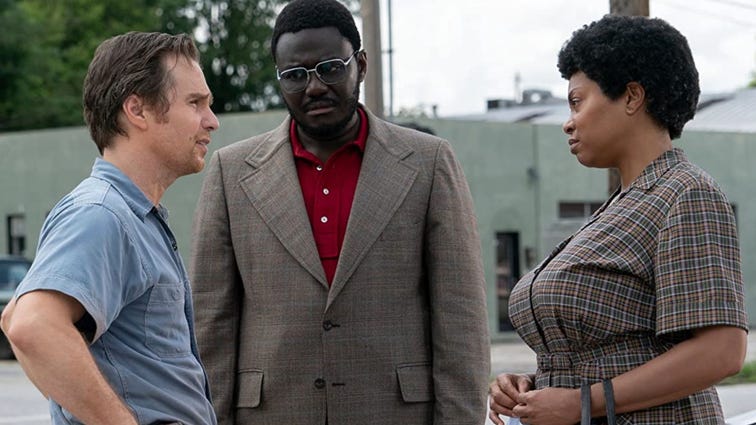

Astute Films
More than a decade after the 1954 Supreme Court Brown vs. Board of Education ruling outlawed school segregation, integrated classrooms had yet to be implemented in much of the American South. The Best of Enemies, which stars Taraji P. Henson and Sam Rockwell, is one of the only movies to showcase the attempts to carry out desegregation in Durham, North Carolina, in 1971.
You might find the evolving friendship of a KKK leader and a civil rights activist grotesquely quixotic — I did, too, until I realized it was based on the true story of C.P. Ellis and Ann Atwater. While I don’t believe history is changed by a single individual, this gripping film shows how individuals can change over the course of history.
–Laura Michelle Davis

 \n ","topic":"","ttag":"","variant":"","viewguid":"","event":"listicle|image|14","correlationId":"","_destCat":"https:\/\/www.netflix.com\/search?q=Dolemite is my name&jbv=80182014","productName":"Dolemite Is My Name","formatType":"IMAGE","location":"LIST","position":14,"sku":"","dwLinkTag":"article-body|listicle|image","selector":"#article-body #listicle-1c5e1e09-95ee-4a6a-a744-ce2577b3e91f .itemImage"}}” rel=”noopener nofollow” target=”_blank”>
\n ","topic":"","ttag":"","variant":"","viewguid":"","event":"listicle|image|14","correlationId":"","_destCat":"https:\/\/www.netflix.com\/search?q=Dolemite is my name&jbv=80182014","productName":"Dolemite Is My Name","formatType":"IMAGE","location":"LIST","position":14,"sku":"","dwLinkTag":"article-body|listicle|image","selector":"#article-body #listicle-1c5e1e09-95ee-4a6a-a744-ce2577b3e91f .itemImage"}}” rel=”noopener nofollow” target=”_blank”>
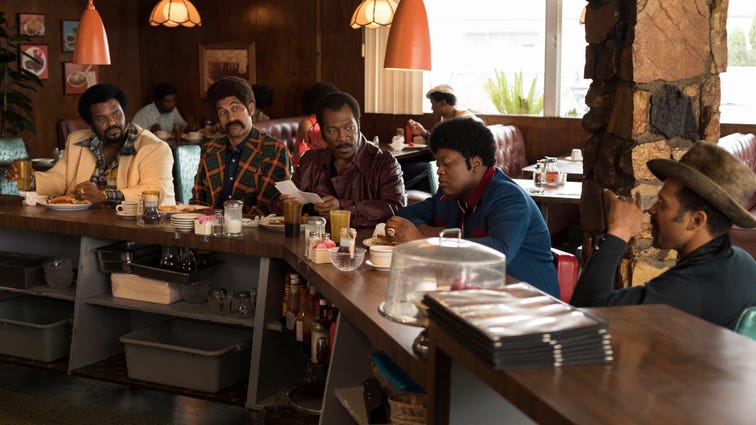

Netflix
Eddie Murphy returned from his acting break with a glorious performance as Rudy Ray Moore, a comedian who played a character called Dolemite in stand-up routines and blaxploitation films from the ’70s. Dolemite Is My Name, from 2019, follows Moore from his job at a record store to the big screen. Tracking Moore’s rise to fame and its bizarre and enthralling turns, Dolemite Is My Name does justice to both Moore’s and Murphy’s talents.
–Jennifer Bisset

 \n ","topic":"","ttag":"","variant":"","viewguid":"","event":"listicle|image|15","correlationId":"","_destCat":"https:\/\/www.netflix.com\/title\/81341644","productName":"Judas and the Black Messiah","formatType":"IMAGE","location":"LIST","position":15,"sku":"","dwLinkTag":"article-body|listicle|image","selector":"#article-body #listicle-514d882e-8b98-41a0-8215-43d707b6be47 .itemImage"}}” rel=”noopener nofollow” target=”_blank”>
\n ","topic":"","ttag":"","variant":"","viewguid":"","event":"listicle|image|15","correlationId":"","_destCat":"https:\/\/www.netflix.com\/title\/81341644","productName":"Judas and the Black Messiah","formatType":"IMAGE","location":"LIST","position":15,"sku":"","dwLinkTag":"article-body|listicle|image","selector":"#article-body #listicle-514d882e-8b98-41a0-8215-43d707b6be47 .itemImage"}}” rel=”noopener nofollow” target=”_blank”>
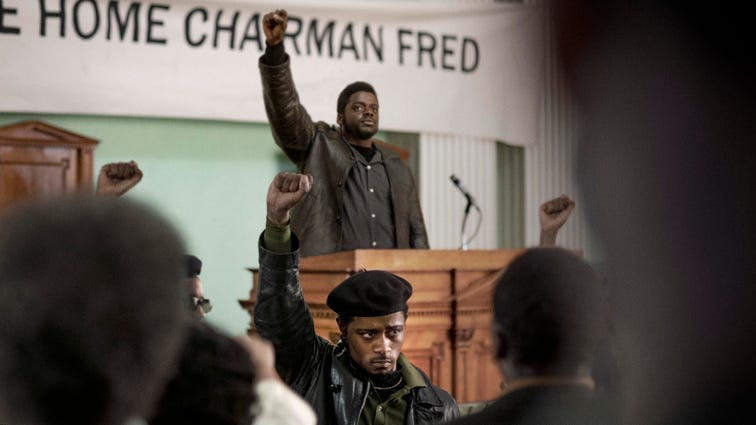

Warner Bros.
If you’re looking for a movie that shows just how extreme and cunning the US government can be when carrying out acts of racial injustice, this one will make you look that harsh reality in its face. Judas and the Black Messiah follows William O’Neal after he’s offered a plea deal by the FBI to infiltrate the Illinois chapter of the Black Panther Party and gather intelligence on Fred Hampton, its chairman.
Actors Daniel Kaluuya (Get Out) and LaKeith Stanfield (Atlanta) bring to life Hampton and O’Neal, respectively, and make you sympathize with both sides as a teenage O’Neal is manipulated to turn against a man he doesn’t know yet. Upon getting to know Hampton, O’Neal sees his humanity and learns of his goal to empower all communities, not just his own, so they can be self-sufficient and defend themselves from injustices perpetrated by the government. All for Hampton to be marked as one of the greatest threats to the internal security of the country at the young age of 21. This retelling of what happened to Hampton is hard to watch, but even harder to look away from once you start watching.
–Theodore Liggians

 \n ","topic":"","ttag":"","variant":"","viewguid":"","event":"listicle|image|16","correlationId":"","_destCat":"https:\/\/www.hulu.com\/series\/women-of-the-movement-69470f77-8462-4bbd-ad74-467bfa3ada69","productName":"Women of the Movement","formatType":"IMAGE","location":"LIST","position":16,"sku":"","dwLinkTag":"article-body|listicle|image","selector":"#article-body #listicle-78fcabfd-582f-4103-8006-0b8b3b23a309 .itemImage"}}” rel=”noopener nofollow” target=”_blank”>
\n ","topic":"","ttag":"","variant":"","viewguid":"","event":"listicle|image|16","correlationId":"","_destCat":"https:\/\/www.hulu.com\/series\/women-of-the-movement-69470f77-8462-4bbd-ad74-467bfa3ada69","productName":"Women of the Movement","formatType":"IMAGE","location":"LIST","position":16,"sku":"","dwLinkTag":"article-body|listicle|image","selector":"#article-body #listicle-78fcabfd-582f-4103-8006-0b8b3b23a309 .itemImage"}}” rel=”noopener nofollow” target=”_blank”>
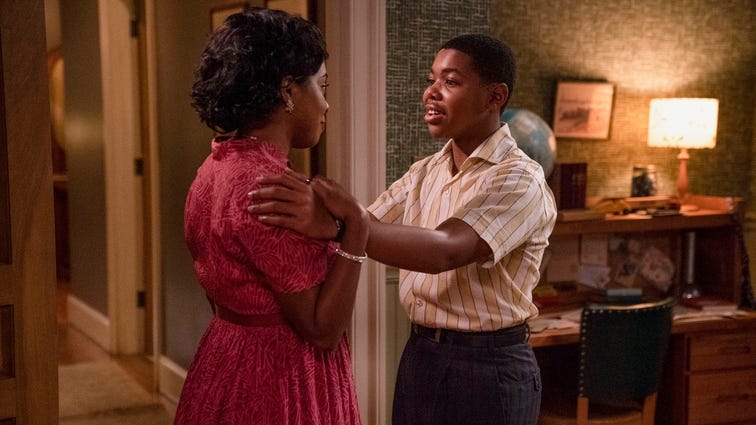

ABC
Centered on Mamie Till-Mobley and her son Emmett Till, Women of the Movement is both heartbreaking and infuriating. But it’s true. The ABC miniseries chronicles the savage lynching of Till, the 14-year-old boy who was murdered in 1955 Mississippi for allegedly “offending” a white woman. The show humanizes Till and shows the close relationship between him and his mother before building up to his death. But it also illustrates Till-Mobley’s anguish and her path to activism.
–Kourtnee Jackson

 \n ","topic":"","ttag":"","variant":"","viewguid":"","event":"listicle|image|17","correlationId":"","_destCat":"https:\/\/www.criterionchannel.com\/the-killing-floor","productName":"The Killing Floor","formatType":"IMAGE","location":"LIST","position":17,"sku":"","dwLinkTag":"article-body|listicle|image","selector":"#article-body #listicle-8bd7f95e-bc51-4fe2-91ff-02eb165e648d .itemImage"}}” rel=”noopener nofollow” target=”_blank”>
\n ","topic":"","ttag":"","variant":"","viewguid":"","event":"listicle|image|17","correlationId":"","_destCat":"https:\/\/www.criterionchannel.com\/the-killing-floor","productName":"The Killing Floor","formatType":"IMAGE","location":"LIST","position":17,"sku":"","dwLinkTag":"article-body|listicle|image","selector":"#article-body #listicle-8bd7f95e-bc51-4fe2-91ff-02eb165e648d .itemImage"}}” rel=”noopener nofollow” target=”_blank”>
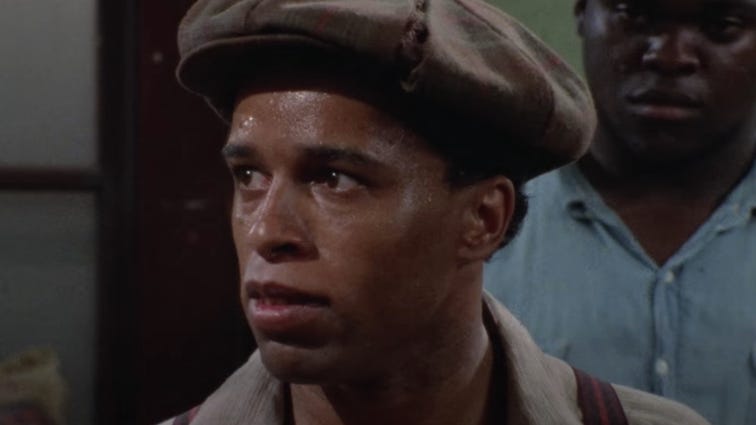

Video screenshot by CNET
Few Americans learn about the Great Migration, when 6 million Black Americans relocated from the rural South to the North in the decades following World War I. Even fewer Americans learn about the working-class struggles that helped shape the formation of multiracial labor unions in the 1930s. The Killing Floor, a 1984 made-for-TV film based on true events and real characters, tells the story of both. Two Black sharecroppers find work in a Chicago meatpacking factory, where they face racist violence and tensions over union organizing during the height of political and social change. The experience of Black labor leaders in US slaughterhouses is a story that needs to be told just as much as Upton Sinclair painted the conditions of immigrants in The Jungle.
–Laura Michelle Davis

 \n ","topic":"","ttag":"","variant":"","viewguid":"","event":"listicle|image|18","correlationId":"","_destCat":"https:\/\/www.fxnetworks.com\/shows\/atlanta","productName":"Atlanta","formatType":"IMAGE","location":"LIST","position":18,"sku":"","dwLinkTag":"article-body|listicle|image","selector":"#article-body #listicle-ce3724f8-b489-485f-9c5c-79ceed44efa7 .itemImage"}}” rel=”noopener nofollow” target=”_blank”>
\n ","topic":"","ttag":"","variant":"","viewguid":"","event":"listicle|image|18","correlationId":"","_destCat":"https:\/\/www.fxnetworks.com\/shows\/atlanta","productName":"Atlanta","formatType":"IMAGE","location":"LIST","position":18,"sku":"","dwLinkTag":"article-body|listicle|image","selector":"#article-body #listicle-ce3724f8-b489-485f-9c5c-79ceed44efa7 .itemImage"}}” rel=”noopener nofollow” target=”_blank”>
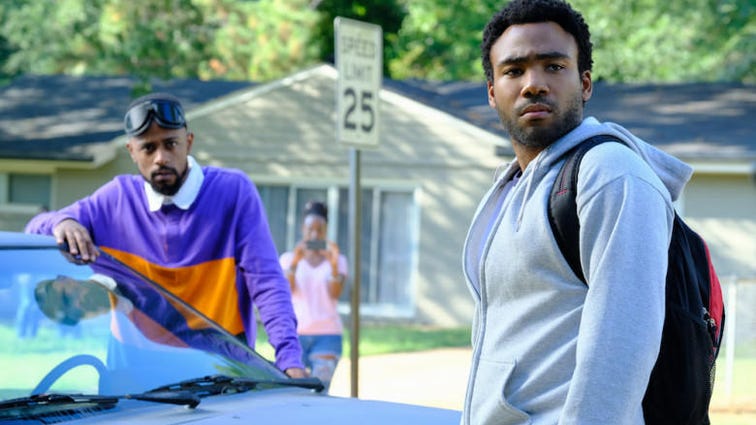

Guy D’Alema/FX
This Emmy award-winning series is one of the most innovative, smart and funny shows FX has aired in a long time. We watch as creator-star Donald Glover tries to manage his cousin, who’s a rapper, but the show also asks what it means to be Black in 21st century America. One early episode takes place in jail and touches on police brutality, discrimination, sexuality and mental illness.
A later episode follows the main characters into a college fraternity house where they sit under a Confederate flag and smoke weed with a white frat member. The situations are wild and at times the show feels like an anthology series as some episodes feel only vaguely tied to the main storyline, but overall it’s a thought- provoking series.
–Zach McAuliffe

 \n ","topic":"","ttag":"","variant":"","viewguid":"","event":"listicle|image|19","correlationId":"","_destCat":"https:\/\/www.hbo.com\/a-black-lady-sketch-show","productName":"A Black Lady Sketch Show","formatType":"IMAGE","location":"LIST","position":19,"sku":"","dwLinkTag":"article-body|listicle|image","selector":"#article-body #listicle-109f501c-1af1-44d3-82e4-37b5dbfcde6f .itemImage"}}” rel=”noopener nofollow” target=”_blank”>
\n ","topic":"","ttag":"","variant":"","viewguid":"","event":"listicle|image|19","correlationId":"","_destCat":"https:\/\/www.hbo.com\/a-black-lady-sketch-show","productName":"A Black Lady Sketch Show","formatType":"IMAGE","location":"LIST","position":19,"sku":"","dwLinkTag":"article-body|listicle|image","selector":"#article-body #listicle-109f501c-1af1-44d3-82e4-37b5dbfcde6f .itemImage"}}” rel=”noopener nofollow” target=”_blank”>
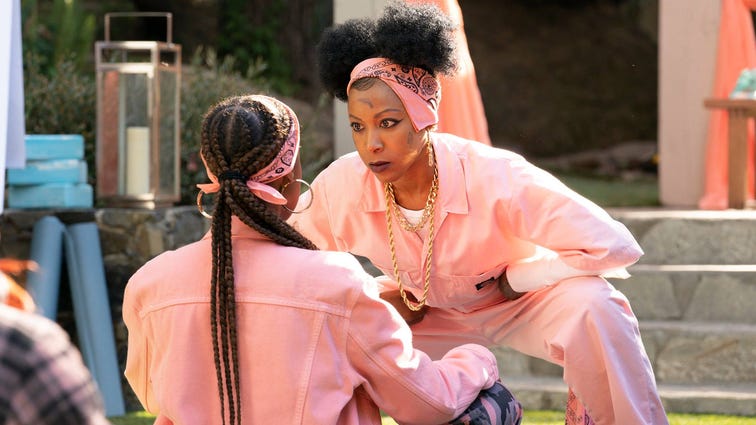

HBO Max
Is there any other sketch show on TV with fresher ideas? Actor, comedian and writer Robin Thede’s killer Emmy-nominated series is thoughtful, hilarious as hell and positively stacked with some of the funniest women on the planet. Thede’s sketch series is a raucous party celebrating Black women that anyone can enjoy. If you haven’t seen it yet, catch up before season 3 hits HBO Max. You can thank me later.
–Ashley Esqueda

 \n ","topic":"","ttag":"","variant":"","viewguid":"","event":"listicle|image|20","correlationId":"","_destCat":"https:\/\/www.peacocktv.com\/stream-tv\/the-amber-ruffin-show","productName":"The Amber Ruffin Show","formatType":"IMAGE","location":"LIST","position":20,"sku":"","dwLinkTag":"article-body|listicle|image","selector":"#article-body #listicle-5d73a054-d891-4c5d-9533-450f4c777a97 .itemImage"}}” rel=”noopener nofollow” target=”_blank”>
\n ","topic":"","ttag":"","variant":"","viewguid":"","event":"listicle|image|20","correlationId":"","_destCat":"https:\/\/www.peacocktv.com\/stream-tv\/the-amber-ruffin-show","productName":"The Amber Ruffin Show","formatType":"IMAGE","location":"LIST","position":20,"sku":"","dwLinkTag":"article-body|listicle|image","selector":"#article-body #listicle-5d73a054-d891-4c5d-9533-450f4c777a97 .itemImage"}}” rel=”noopener nofollow” target=”_blank”>
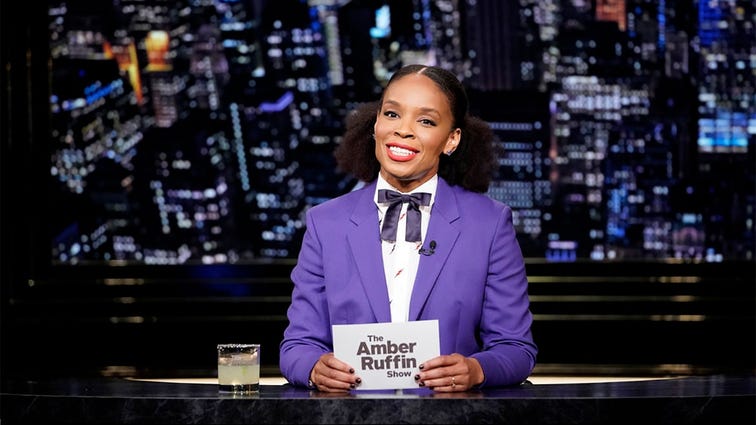

Peacock
Comedian Amber Ruffin made history in 2014 by becoming the first Black woman in the genre’s history to write for a network TV late-night show, and now, she’s got her own place to shine. NBC handed Ruffin her own late-night series to air on its streaming service Peacock, and she’s making some of the most thought-provoking late-night TV in the game. No guests? No problem. She’s too busy giving us all a master class in deconstructing late night — and reimagining it.
–Ashley Esqueda

 \n ","topic":"","ttag":"","variant":"","viewguid":"","event":"listicle|image|21","correlationId":"","_destCat":"https:\/\/www.hbo.com\/insecure","productName":"Insecure","formatType":"IMAGE","location":"LIST","position":21,"sku":"","dwLinkTag":"article-body|listicle|image","selector":"#article-body #listicle-b75d9d1b-1615-4495-bd3c-413a85ea77dd .itemImage"}}” rel=”noopener nofollow” target=”_blank”>
\n ","topic":"","ttag":"","variant":"","viewguid":"","event":"listicle|image|21","correlationId":"","_destCat":"https:\/\/www.hbo.com\/insecure","productName":"Insecure","formatType":"IMAGE","location":"LIST","position":21,"sku":"","dwLinkTag":"article-body|listicle|image","selector":"#article-body #listicle-b75d9d1b-1615-4495-bd3c-413a85ea77dd .itemImage"}}” rel=”noopener nofollow” target=”_blank”>
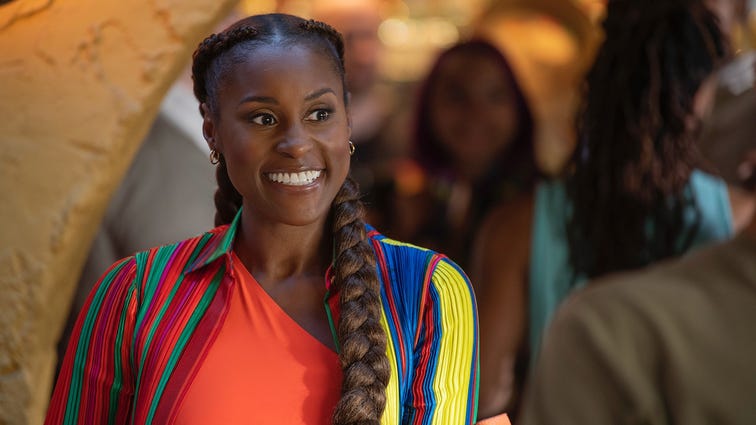

Merie W. Wallace/HBO
I adored every minute of Insecure, HBO’s hilarious, heartfelt and insightful comedy-drama exploring the contemporary Black experience through a group of female friends living in LA. Based on Issa Rae’s Web series Awkward Black Girl, the show stars Rae as free-spirited Issa Dee, who’s navigating friendship, romance, career and community alongside her best buddy, Molly (Yvonne Orji), and a group of their pals. The main characters are smart, witty, exuberant, flawed, and well, insecure. They’re also perfectly relatable.
The show — which ended for good in December with a pitch-perfect finale — manages to be one of the funniest out there without ever veering into the overwritten-sitcom trap. And through all their ups and downs, elation and embarrassment, the characters always come across as authentic, the kind of people you want to hang out with, and grow with, in real life.
–Leslie Katz

 \n ","topic":"","ttag":"","variant":"","viewguid":"","event":"listicle|image|22","correlationId":"","_destCat":"https:\/\/www.amazon.com\/gp\/video\/detail\/B09KTNJCPN\/ref=atv_dp_share_cu_r","productName":"Harlem","formatType":"IMAGE","location":"LIST","position":22,"sku":"","dwLinkTag":"article-body|listicle|image","selector":"#article-body #listicle-22f4363b-4c21-498e-822f-2f82d5ebeb22 .itemImage"}}” rel=”noopener nofollow” target=”_blank”>
\n ","topic":"","ttag":"","variant":"","viewguid":"","event":"listicle|image|22","correlationId":"","_destCat":"https:\/\/www.amazon.com\/gp\/video\/detail\/B09KTNJCPN\/ref=atv_dp_share_cu_r","productName":"Harlem","formatType":"IMAGE","location":"LIST","position":22,"sku":"","dwLinkTag":"article-body|listicle|image","selector":"#article-body #listicle-22f4363b-4c21-498e-822f-2f82d5ebeb22 .itemImage"}}” rel=”noopener nofollow” target=”_blank”>
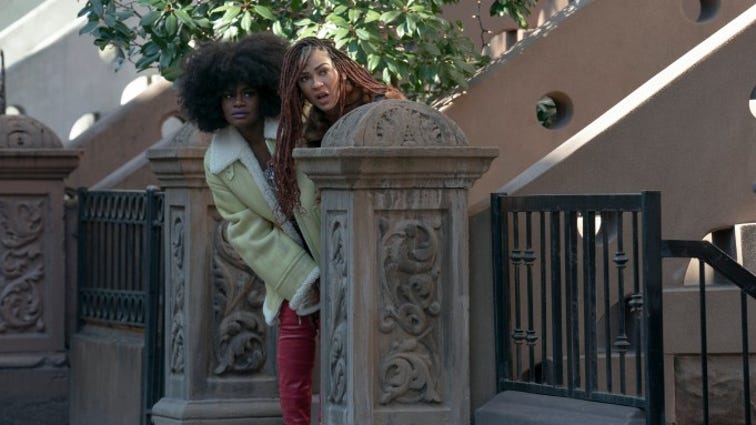

Sarah Shatz/Amazon Prime Video
If you loved the movie Girls Trip and enjoyed Insecure, Harlem is definitely the show for you. It follows four women living in Harlem, New York. Between navigating work-life balance (careers and romantic relationships) each woman’s experience/journey is relatable and encouraging. This show will give you all the feels, while keeping you on the edge of your seat.
–Arielle Burton

 \n ","topic":"","ttag":"","variant":"","viewguid":"","event":"listicle|image|23","correlationId":"","_destCat":"https:\/\/play.hbomax.com\/page\/urn:hbo:page:GYN4-IQS-58I-wgEAAAH-:type:series?camp=googleHBOMAX","productName":"A Different World","formatType":"IMAGE","location":"LIST","position":23,"sku":"","dwLinkTag":"article-body|listicle|image","selector":"#article-body #listicle-dfde4597-5aa3-45bb-a78b-2768317fef96 .itemImage"}}” rel=”noopener nofollow” target=”_blank”>
\n ","topic":"","ttag":"","variant":"","viewguid":"","event":"listicle|image|23","correlationId":"","_destCat":"https:\/\/play.hbomax.com\/page\/urn:hbo:page:GYN4-IQS-58I-wgEAAAH-:type:series?camp=googleHBOMAX","productName":"A Different World","formatType":"IMAGE","location":"LIST","position":23,"sku":"","dwLinkTag":"article-body|listicle|image","selector":"#article-body #listicle-dfde4597-5aa3-45bb-a78b-2768317fef96 .itemImage"}}” rel=”noopener nofollow” target=”_blank”>
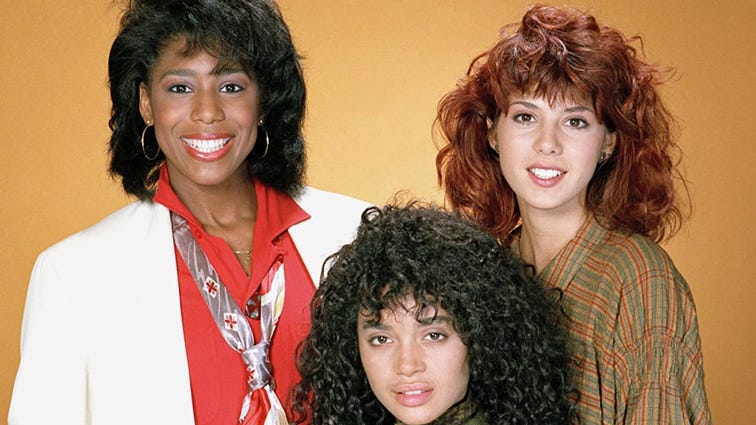

NBC Universal
The Cosby Show spin-off A Different World will have you laughing hysterically one moment and crying the next. The series follows young people who attend Hillman College, a fictional HBCU (historically black college university). The struggles, fears and successes of Dwayne, Whitley and other characters give insight into what it was like to be young, Black and trying to further your education, career and life during the late ’80s and early ’90s.
–Arielle Burton

 \n ","topic":"","ttag":"","variant":"","viewguid":"","event":"listicle|image|24","correlationId":"","_destCat":"https:\/\/www.youtube.com\/watch?v=5Tek9h3a5wQ","productName":"Baldwin vs. Buckley: The great debate on racism in America","formatType":"IMAGE","location":"LIST","position":24,"sku":"","dwLinkTag":"article-body|listicle|image","selector":"#article-body #listicle-e914ad46-c8dc-4bcb-ae30-7801fd7704e1 .itemImage"}}” rel=”noopener” target=”_blank”>
\n ","topic":"","ttag":"","variant":"","viewguid":"","event":"listicle|image|24","correlationId":"","_destCat":"https:\/\/www.youtube.com\/watch?v=5Tek9h3a5wQ","productName":"Baldwin vs. Buckley: The great debate on racism in America","formatType":"IMAGE","location":"LIST","position":24,"sku":"","dwLinkTag":"article-body|listicle|image","selector":"#article-body #listicle-e914ad46-c8dc-4bcb-ae30-7801fd7704e1 .itemImage"}}” rel=”noopener” target=”_blank”>


Video screenshot by Leslie Katz/CNET
In February 1965, two notable American authors and intellectuals met across the aisle at the University of Cambridge in England to debate the question: “Has the American dream been achieved at the expense of the American Negro?” The hour-long event between civil rights activist James Baldwin and conservative thinker William F. Buckley Jr., before a rapt audience, showcased the pair’s impressive oratory skills — and very divided views — on racism, civil rights and the lack of economic prosperity for many Black Americans.
Baldwin’s emphasis on the word “is” and “I” set the tone of his argument. “The American Dream is at the expense of the American Negro,” Baldwin declared in his 24-minute remarks, adding emphatically that “it comes as a great shock around the age of 5, or 6, or 7, to discover that the flag to which you have pledged allegiance, along with everybody else, has not pledged allegiance to you.”
Buckley, editor in chief and founder of the conservative magazine The National Review and often referred to as the father of modern American conservatism, eschewed the views of some white supremacists of the time but supported segregation. His point of view: that Black Americans were not prospering because they lacked “that particular energy” to improve themselves, as other immigrants had done including the Jewish and Italian communities.
Baldwin won the debate, with 544 supporting his argument and 164 against. It’s still available to watch, and you can find many analyses of why the matchup still matters today.
–Connie Guglielmo

 \n ","topic":"","ttag":"","variant":"","viewguid":"","event":"listicle|image|25","correlationId":"","_destCat":"https:\/\/www.hbomax.com\/series\/urn:hbo:series:GXXAcxwJukqnCVgEAAAEG","productName":"Watchmen","formatType":"IMAGE","location":"LIST","position":25,"sku":"","dwLinkTag":"article-body|listicle|image","selector":"#article-body #listicle-95a680cf-12e6-4960-8456-16d62616c221 .itemImage"}}” rel=”noopener nofollow” target=”_blank”>
\n ","topic":"","ttag":"","variant":"","viewguid":"","event":"listicle|image|25","correlationId":"","_destCat":"https:\/\/www.hbomax.com\/series\/urn:hbo:series:GXXAcxwJukqnCVgEAAAEG","productName":"Watchmen","formatType":"IMAGE","location":"LIST","position":25,"sku":"","dwLinkTag":"article-body|listicle|image","selector":"#article-body #listicle-95a680cf-12e6-4960-8456-16d62616c221 .itemImage"}}” rel=”noopener nofollow” target=”_blank”>
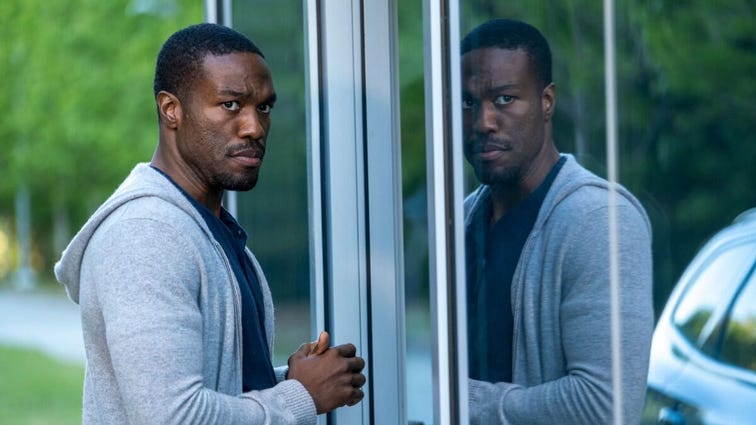

HBO
HBO’s Watchmen is one of the best television shows of the last decade. Damon Lindelof, of Lost fame (and perhaps more germanely, a showrunner on HBO’s spectacular show The Leftovers), was probably testing fate when he decided not simply to adapt, but rather to continue perhaps the greatest graphic novel ever written. Yet his fusion of the classic superhero story with Black history, contemporary politics and an impulse to subvert the rote roles of minorities in modern media created the most wildly entertaining and inventive show I’ve seen in years — and it’s the perfect sequel to a perfect tale to boot.
At the center of Watchmen’s story is Regina King’s Angela Abar, a police officer in Tulsa, Oklahoma, fighting to keep the influence of white supremacists at bay. The mystery of the show seems at first fairly standard (albeit set in an alternate reality). A crime is committed, a conspiracy appears to be afoot, and various investigators and interested parties descend on the city to get in on the action.
But each episode spirals out into more experimental territory, exploring American politics, generational identity, the cosmos, the meaning of life and love and time itself. Along the way, viewers get treated to incredible performances from a stellar cast (Regina King, Jeremy Irons, Tim Blake Nelson, Yahya Abdul-Mateen II and Jean Smart are uniformly brilliant); mind-bending cold opens; and a warm, human heart at the center of it all.
–Dave Priest

 \n ","topic":"","ttag":"","variant":"","viewguid":"","event":"listicle|image|26","correlationId":"","_destCat":"https:\/\/www.oprah.com\/sp\/queen-sugar-s6.html","productName":"Queen Sugar","formatType":"IMAGE","location":"LIST","position":26,"sku":"","dwLinkTag":"article-body|listicle|image","selector":"#article-body #listicle-dec98bfd-92c7-46c6-b7e5-6154b70c121f .itemImage"}}” rel=”noopener nofollow” target=”_blank”>
\n ","topic":"","ttag":"","variant":"","viewguid":"","event":"listicle|image|26","correlationId":"","_destCat":"https:\/\/www.oprah.com\/sp\/queen-sugar-s6.html","productName":"Queen Sugar","formatType":"IMAGE","location":"LIST","position":26,"sku":"","dwLinkTag":"article-body|listicle|image","selector":"#article-body #listicle-dec98bfd-92c7-46c6-b7e5-6154b70c121f .itemImage"}}” rel=”noopener nofollow” target=”_blank”>
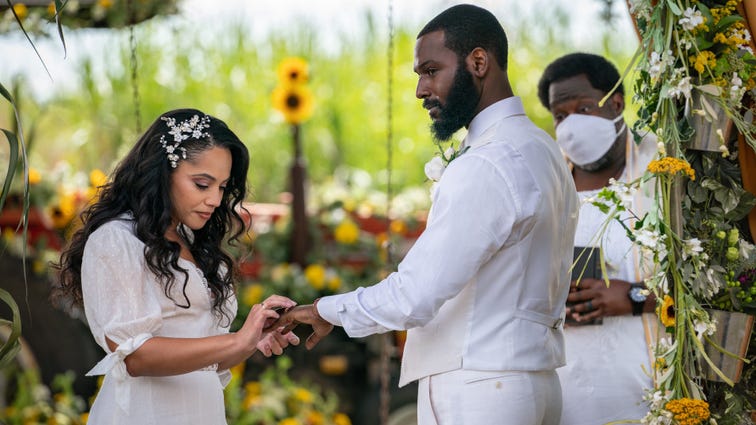

OWN
Loosely based on Natalie Baszile’s novel Queen Sugar, OWN’s drama series follows the Bordelon clan as they navigate losing their patriarch and inheriting his sugarcane farm. Three siblings, played by Kofi Siriboe, Dawn-Lyen Gardner and Rutina Wesley, try to make it work as Black farm owners in a rural Louisiana town while contending with complex (but relatable) family dynamics, personal challenges and racism.
Fortunately, they have help from their wise aunt and a host of other characters in their orbit. Though season 7 will be the show’s last, it’s tackled everything from sibling rivalry to sexual assault to police brutality. The beautiful visuals complement every scene in Queen Sugar, where tension, vulnerability and love make for compelling storytelling — with family as its heartbeat.
–Kourtnee Jackson

 \n ","topic":"","ttag":"","variant":"","viewguid":"","event":"listicle|image|27","correlationId":"","_destCat":"https:\/\/www.amazon.com\/Set-Off-Jada-Pinkett\/dp\/B00VHQEESU\/","productName":"Set It Off","formatType":"IMAGE","location":"LIST","position":27,"sku":"","dwLinkTag":"article-body|listicle|image","selector":"#article-body #listicle-12bb835b-7493-4780-8775-588d9e174772 .itemImage"}}” rel=”noopener nofollow” target=”_blank”>
\n ","topic":"","ttag":"","variant":"","viewguid":"","event":"listicle|image|27","correlationId":"","_destCat":"https:\/\/www.amazon.com\/Set-Off-Jada-Pinkett\/dp\/B00VHQEESU\/","productName":"Set It Off","formatType":"IMAGE","location":"LIST","position":27,"sku":"","dwLinkTag":"article-body|listicle|image","selector":"#article-body #listicle-12bb835b-7493-4780-8775-588d9e174772 .itemImage"}}” rel=”noopener nofollow” target=”_blank”>
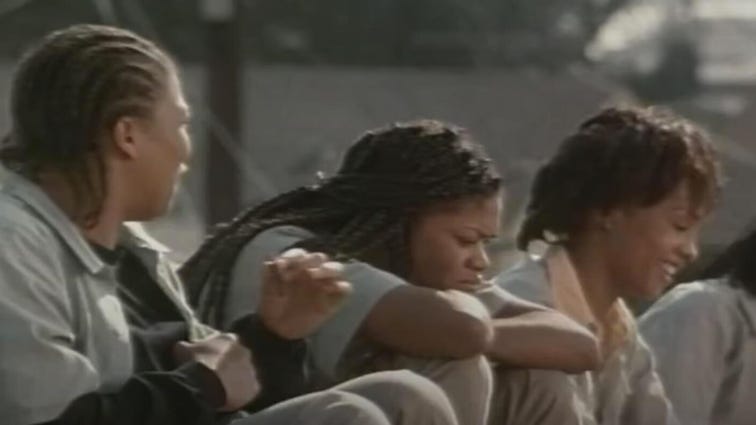

Video screenshot by Leslie Katz/CNET
This still dazzling 1996 crime movie puts an impassioned twist on the heist genre with a cast of Black women including Queen Latifah, Jada Pinkett Smith, Vivica A. Fox and Kimberly Elise pulling off a score. Smartly crafted and brilliantly acted, Set It Off is as relevant now as it was when it was made.
–Richard Trenholm

 \n ","topic":"","ttag":"","variant":"","viewguid":"","event":"listicle|image|28","correlationId":"","_destCat":"https:\/\/www.amazon.com\/Sylvies-Love-Tessa-Thompson\/dp\/B08L49K11S\/ref=sr_1_1?crid=1T08HN2YWUTA&dchild=1&keywords=sylvie\u0027s+love+prime+video&qid=1613015968&sprefix=Sylvie\u0027s+Love,aps,222&sr=8-1","productName":"Sylvie\u0027s Love","formatType":"IMAGE","location":"LIST","position":28,"sku":"","dwLinkTag":"article-body|listicle|image","selector":"#article-body #listicle-3ebec51b-a142-4e70-8fd0-73db08c67f97 .itemImage"}}” rel=”noopener nofollow” target=”_blank”>
\n ","topic":"","ttag":"","variant":"","viewguid":"","event":"listicle|image|28","correlationId":"","_destCat":"https:\/\/www.amazon.com\/Sylvies-Love-Tessa-Thompson\/dp\/B08L49K11S\/ref=sr_1_1?crid=1T08HN2YWUTA&dchild=1&keywords=sylvie\u0027s+love+prime+video&qid=1613015968&sprefix=Sylvie\u0027s+Love,aps,222&sr=8-1","productName":"Sylvie\u0027s Love","formatType":"IMAGE","location":"LIST","position":28,"sku":"","dwLinkTag":"article-body|listicle|image","selector":"#article-body #listicle-3ebec51b-a142-4e70-8fd0-73db08c67f97 .itemImage"}}” rel=”noopener nofollow” target=”_blank”>
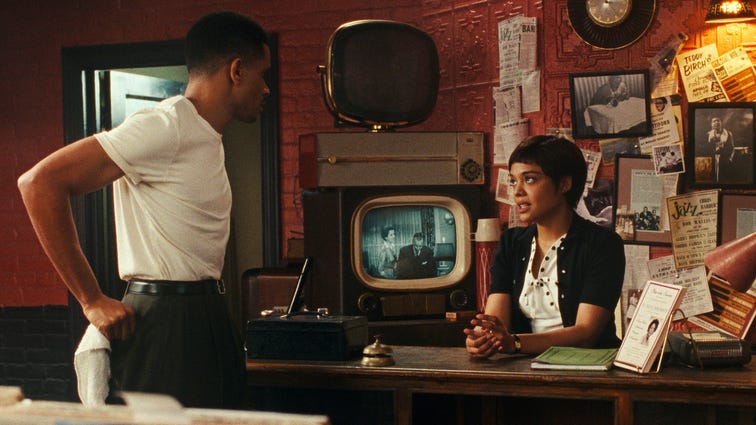

Amazon
Though Sylvie’s Love is, at its core, an old-fashioned love story, its dewy romance is remarkably refreshing: a period drama centered on Black people that isn’t dominated by issues of race and bigotry. Set in an aesthetically enchanting ’60s New York City, it follows Sylvie and Robert, who have a chance to reconnect after a summer romance five years ago. Both work in music, and the film’s soundtrack, featuring Sam Cooke, Jackie Wilson and more, helps transport you to this glowing place.
–Jennifer Bisset

 \n ","topic":"","ttag":"","variant":"","viewguid":"","event":"listicle|image|29","correlationId":"","_destCat":"https:\/\/www.amazon.com\/Small-Axe-Season-1\/dp\/B08J4HRR4P","productName":"Small Axe","formatType":"IMAGE","location":"LIST","position":29,"sku":"","dwLinkTag":"article-body|listicle|image","selector":"#article-body #listicle-92cb6743-5310-4f15-ac60-37d6121b4a5b .itemImage"}}” rel=”noopener nofollow” target=”_blank”>
\n ","topic":"","ttag":"","variant":"","viewguid":"","event":"listicle|image|29","correlationId":"","_destCat":"https:\/\/www.amazon.com\/Small-Axe-Season-1\/dp\/B08J4HRR4P","productName":"Small Axe","formatType":"IMAGE","location":"LIST","position":29,"sku":"","dwLinkTag":"article-body|listicle|image","selector":"#article-body #listicle-92cb6743-5310-4f15-ac60-37d6121b4a5b .itemImage"}}” rel=”noopener nofollow” target=”_blank”>
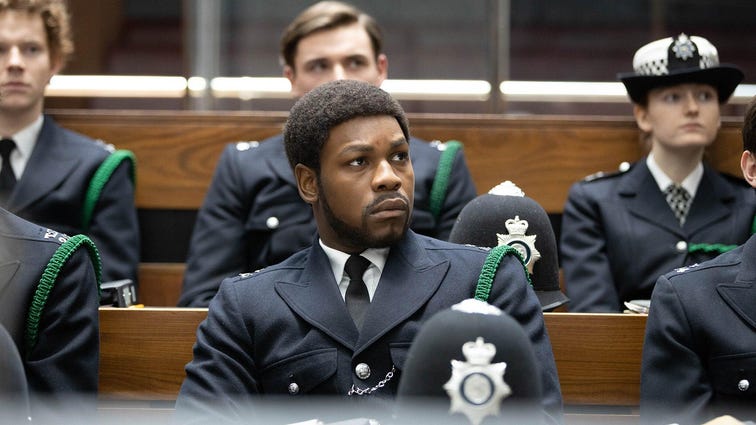

Amazon
I loved Steve McQueen’s anthology series Small Axe. As with Black Mirror, each episode is narratively independent but thematically connected and explores a different story about the West Indian community in London from the late ’60s to the ’80s. A restaurant-turned-community center and a school for the so-called “educationally subnormal” are just two of the sites where these stories take place.
If I had to highlight only one episode, I’d go for the second, Lovers Rock. The plot may feel almost nonexistent, but the intense atmosphere and feeling of this joyful and sensual house party is unforgettable. Its soundtrack has been playing on repeat in my home since I watched it. It’s literally playing right now as I write this.
The 12 Years a Slave director said in a statement that he dedicated these films to George Floyd “and all the other Black people that have been murdered, seen or unseen, because of who they are, in the US, UK and elsewhere.” He added, “If you are the big tree, we are the small axe. Black Lives Matter.”
–Marta Franco

 \n ","topic":"","ttag":"","variant":"","viewguid":"","event":"listicle|image|30","correlationId":"","_destCat":"https:\/\/www.netflix.com\/search?q=Ma Rainey\u0027s black bottom&jbv=81100780","productName":"Ma Rainey\u0027s Black Bottom","formatType":"IMAGE","location":"LIST","position":30,"sku":"","dwLinkTag":"article-body|listicle|image","selector":"#article-body #listicle-fde3fa34-77aa-487c-99ef-8efca5b5fb83 .itemImage"}}” rel=”noopener nofollow” target=”_blank”>
\n ","topic":"","ttag":"","variant":"","viewguid":"","event":"listicle|image|30","correlationId":"","_destCat":"https:\/\/www.netflix.com\/search?q=Ma Rainey\u0027s black bottom&jbv=81100780","productName":"Ma Rainey\u0027s Black Bottom","formatType":"IMAGE","location":"LIST","position":30,"sku":"","dwLinkTag":"article-body|listicle|image","selector":"#article-body #listicle-fde3fa34-77aa-487c-99ef-8efca5b5fb83 .itemImage"}}” rel=”noopener nofollow” target=”_blank”>
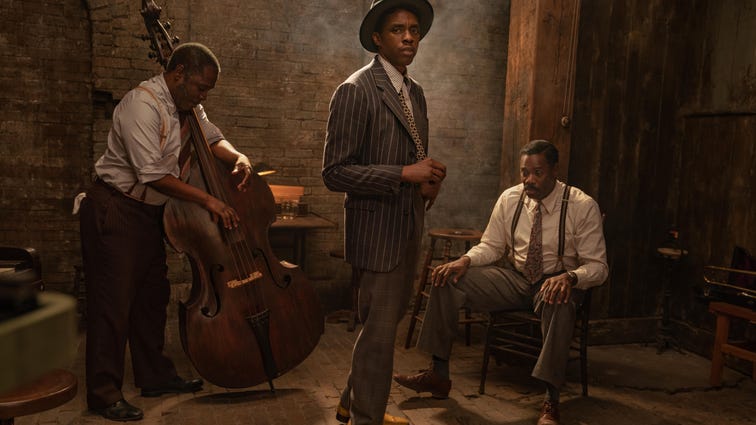

Netflix
I started Ma Rainey’s Black Bottom not knowing what to expect, other than that it was the final performance of Chadwick Boseman, whose sudden death in 2020 still fills me with sadness. It’s a bit slow at first and awkwardly paced, with dialogue that feels like it came from a stage play.
Turns out, this is exactly that: a film adaptation of a 1982 August Wilson play. I think it helps to know that going in, as you can stop waiting for it to become a “movie” and just settle in for the small, self-contained story about two struggling musicians — the eponymous singer and her troubled trumpet-player.
They’re played by Viola Davis and Boseman, respectively, and, just, wow. I refuse to spoil anything, other than to say the story is wrenching at times, the performances dazzling.
–Rick Broida

 \n ","topic":"","ttag":"","variant":"","viewguid":"","event":"listicle|image|31","correlationId":"","_destCat":"https:\/\/www.netflix.com\/watch\/81045635?trackId=13752289&tctx=0,0,72fd9b30a0e0e5daca5a45395026509eb5be288b:939432b8cd6c28ec161c0b75421befc7e9edad78,72fd9b30a0e0e5daca5a45395026509eb5be288b:939432b8cd6c28ec161c0b75421befc7e9edad78,unknown,","productName":"Da 5 Bloods","formatType":"IMAGE","location":"LIST","position":31,"sku":"","dwLinkTag":"article-body|listicle|image","selector":"#article-body #listicle-b5b3d233-65b8-4506-9e0f-b7348eb169a3 .itemImage"}}” rel=”noopener nofollow” target=”_blank”>
\n ","topic":"","ttag":"","variant":"","viewguid":"","event":"listicle|image|31","correlationId":"","_destCat":"https:\/\/www.netflix.com\/watch\/81045635?trackId=13752289&tctx=0,0,72fd9b30a0e0e5daca5a45395026509eb5be288b:939432b8cd6c28ec161c0b75421befc7e9edad78,72fd9b30a0e0e5daca5a45395026509eb5be288b:939432b8cd6c28ec161c0b75421befc7e9edad78,unknown,","productName":"Da 5 Bloods","formatType":"IMAGE","location":"LIST","position":31,"sku":"","dwLinkTag":"article-body|listicle|image","selector":"#article-body #listicle-b5b3d233-65b8-4506-9e0f-b7348eb169a3 .itemImage"}}” rel=”noopener nofollow” target=”_blank”>
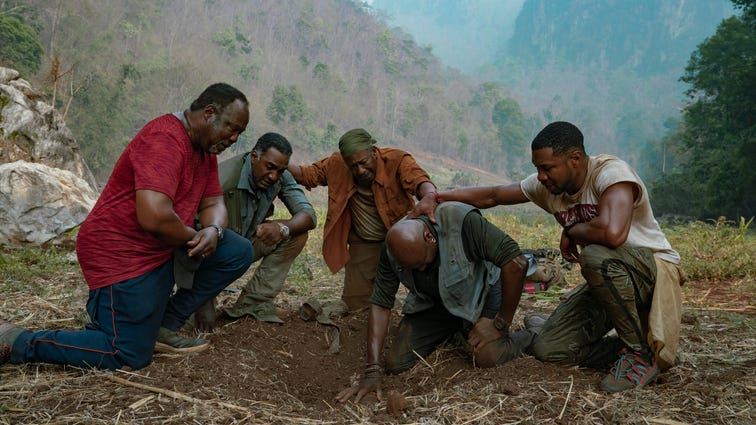

David Lee/Netflix
Spike Lee’s best movies seemed to be behind him after the early aughts, but after a few duds, he’s returned to form by, well, returning to forms. That is, he’s using genre structures (like the cop movie and the war movie) as frameworks for his distinctively preachy (in the best kind of way) form of storytelling. Lee’s best movies, with Do the Right Thing standing clearly atop the heap, are argumentative, to understate it. They’re in your face, trying less to convince you and more to confront you.
Da 5 Bloods, about four aging men who return to Vietnam to recover gold they stashed in the jungle during their tour in the war, is the same: Shots repeat themselves to hammer home moments of significance, memories insert themselves as flashbacks yet keep the rememberers the same age no matter their context, and at a climactic moment of the film, a character addresses the camera in extended monologue.
And it works — the clever allusions to war films of yore, the deeply human moments of connection and alienation, all of it. It works because Lee is so attuned to characters in all their particularity, and the actors capture that particularity with a natural charisma. Delroy Lindo steals the show, but Chadwick Boseman, Jonathan Majors, Clarke Peters and the rest of the cast shine.
And as a film capturing and commenting on Black history and American history writ large? Few can match it.
–Dave Priest

 \n ","topic":"","ttag":"","variant":"","viewguid":"","event":"listicle|image|32","correlationId":"","_destCat":"https:\/\/www.amazon.com\/Blindspotting-Daveed-Diggs\/dp\/B07G4N3J9R\/","productName":"Blindspotting","formatType":"IMAGE","location":"LIST","position":32,"sku":"","dwLinkTag":"article-body|listicle|image","selector":"#article-body #listicle-9624d30a-b0ac-44e4-9364-3060d1d1e5f9 .itemImage"}}” rel=”noopener nofollow” target=”_blank”>
\n ","topic":"","ttag":"","variant":"","viewguid":"","event":"listicle|image|32","correlationId":"","_destCat":"https:\/\/www.amazon.com\/Blindspotting-Daveed-Diggs\/dp\/B07G4N3J9R\/","productName":"Blindspotting","formatType":"IMAGE","location":"LIST","position":32,"sku":"","dwLinkTag":"article-body|listicle|image","selector":"#article-body #listicle-9624d30a-b0ac-44e4-9364-3060d1d1e5f9 .itemImage"}}” rel=”noopener nofollow” target=”_blank”>
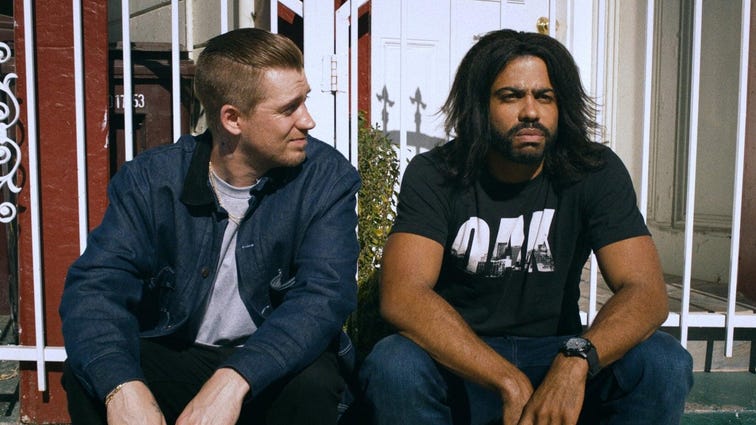

Lionsgate
Blindspotting is one of those movies you don’t forget. The film tackles issues of racism and gentrification (particularly in the San Francisco Bay Area) and is punctuated by jarring comedy. This makes it not only an incredibly entertaining piece of art, but an important one that paints a stark image of the impact systemic racism has on communities and individuals. Its message extends beyond the Bay Area to an entire nation that has long overlooked the impact of its policies and continuous marginalization of communities of color.
–Abrar Al-Heeti

 \n ","topic":"","ttag":"","variant":"","viewguid":"","event":"listicle|image|33","correlationId":"","_destCat":"https:\/\/www.netflix.com\/title\/80998887","productName":"Queen & Slim","formatType":"IMAGE","location":"LIST","position":33,"sku":"","dwLinkTag":"article-body|listicle|image","selector":"#article-body #listicle-94028c89-32e6-442d-8ec9-12b19d6f8f13 .itemImage"}}” rel=”noopener nofollow” target=”_blank”>
\n ","topic":"","ttag":"","variant":"","viewguid":"","event":"listicle|image|33","correlationId":"","_destCat":"https:\/\/www.netflix.com\/title\/80998887","productName":"Queen & Slim","formatType":"IMAGE","location":"LIST","position":33,"sku":"","dwLinkTag":"article-body|listicle|image","selector":"#article-body #listicle-94028c89-32e6-442d-8ec9-12b19d6f8f13 .itemImage"}}” rel=”noopener nofollow” target=”_blank”>
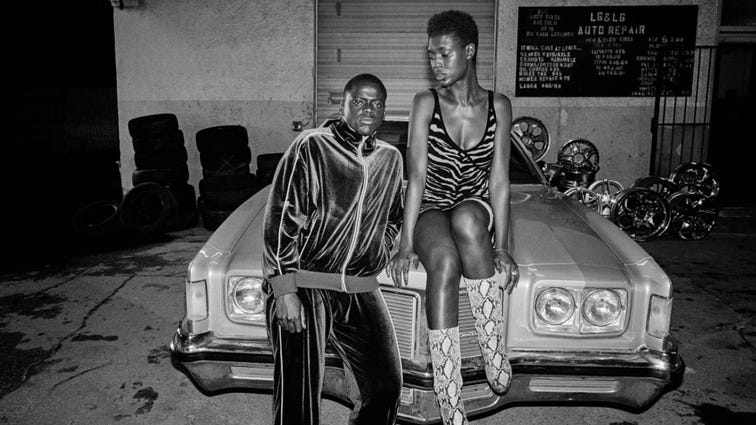

Andrew D. Wagner/Universal Pictures
Queen & Slim is a brilliant, relatable narrative about the Black experience that feels universes away from fantasy-packed action hero tales or starry-eyed happy endings. In this road crime drama, “driving while Black” sets into motion an unordinary turn of events surrounded by the ordinary intersections of fear, faith, oppression, solidarity and betrayal. It enlightens without being preachy and doesn’t rely on Hollywood’s preordained formulas dealing with police violence.
–Laura Michelle Davis

 \n ","topic":"","ttag":"","variant":"","viewguid":"","event":"listicle|image|34","correlationId":"","_destCat":"https:\/\/www.amazon.com\/THEM-Season-1\/dp\/B08XXDRJKH","productName":"Them","formatType":"IMAGE","location":"LIST","position":34,"sku":"","dwLinkTag":"article-body|listicle|image","selector":"#article-body #listicle-3920a1e4-e580-4514-9b0b-e7e8eb92bb32 .itemImage"}}” rel=”noopener nofollow” target=”_blank”>
\n ","topic":"","ttag":"","variant":"","viewguid":"","event":"listicle|image|34","correlationId":"","_destCat":"https:\/\/www.amazon.com\/THEM-Season-1\/dp\/B08XXDRJKH","productName":"Them","formatType":"IMAGE","location":"LIST","position":34,"sku":"","dwLinkTag":"article-body|listicle|image","selector":"#article-body #listicle-3920a1e4-e580-4514-9b0b-e7e8eb92bb32 .itemImage"}}” rel=”noopener nofollow” target=”_blank”>
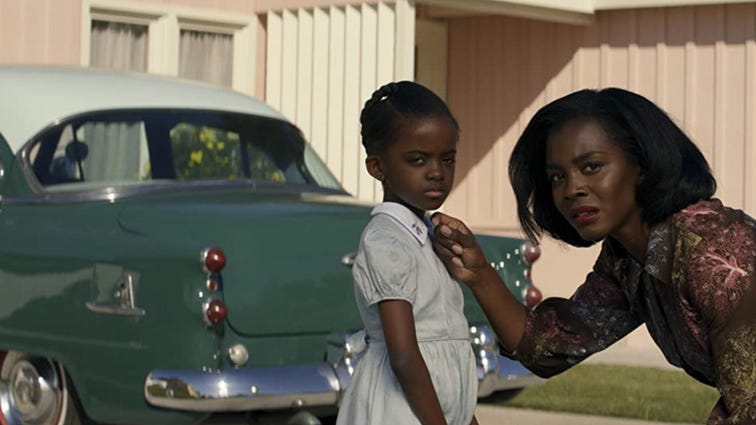

Amazon
Them is a blunt depiction of racial terror in the 1950s, focused around a Black family that moves to the then-white suburb of Compton, Los Angeles. I won’t lie: Every episode will leave you shaken, terrified, pissed off or deeply uncomfortable. While the Amazon anthology series parallels the recent genre of popular semi-supernatural Black horror films — notably Jordan Peele’s Get Out (included on our list below) and Us — it’s been far more controversial among audiences, with many claiming the excessive violence is overstated and pimps off Black trauma. What kept me watching was the artful way the series used both mysticism and historical realism to relay how everyday anti-Black bigotry impacts the psyche.
–Laura Michelle Davis

 \n ","topic":"","ttag":"","variant":"","viewguid":"","event":"listicle|image|35","correlationId":"","_destCat":"https:\/\/www.disneyplus.com\/movies\/marvel-studios-black-panther\/1GuXuYPj99Ke","productName":"Black Panther","formatType":"IMAGE","location":"LIST","position":35,"sku":"","dwLinkTag":"article-body|listicle|image","selector":"#article-body #listicle-9e28dd3c-a883-4394-8e01-a8d1ead348d0 .itemImage"}}” rel=”noopener nofollow” target=”_blank”>
\n ","topic":"","ttag":"","variant":"","viewguid":"","event":"listicle|image|35","correlationId":"","_destCat":"https:\/\/www.disneyplus.com\/movies\/marvel-studios-black-panther\/1GuXuYPj99Ke","productName":"Black Panther","formatType":"IMAGE","location":"LIST","position":35,"sku":"","dwLinkTag":"article-body|listicle|image","selector":"#article-body #listicle-9e28dd3c-a883-4394-8e01-a8d1ead348d0 .itemImage"}}” rel=”noopener nofollow” target=”_blank”>
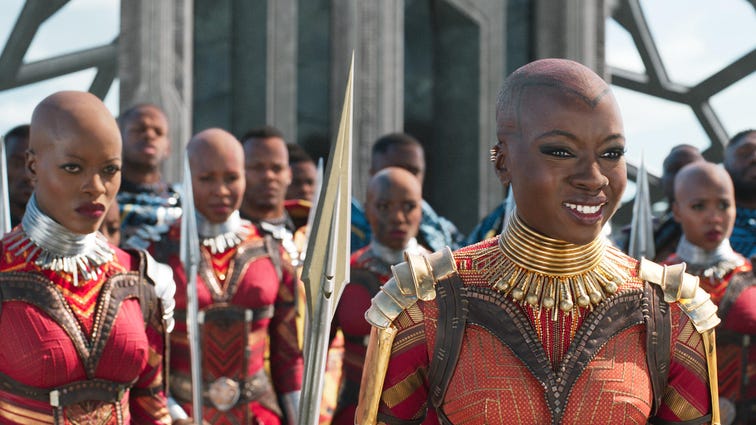

Marvel Studios
One of the powers of big-screen Marvel superhero Black Panther is his suit’s ability to soak up the punishment from any attack — and then fire it right back at the attacker. That’s a nifty metaphor for this absolute riot of an action movie: a righteous riposte to centuries of oppression, absorbed and answered with a glorious, joyous celebration of Blackness.
–Richard Trenholm

 \n ","topic":"","ttag":"","variant":"","viewguid":"","event":"listicle|image|36","correlationId":"","_destCat":"https:\/\/www.netflix.com\/title\/80178687","productName":"Black Lightning","formatType":"IMAGE","location":"LIST","position":36,"sku":"","dwLinkTag":"article-body|listicle|image","selector":"#article-body #listicle-65d177f0-81c8-447b-b52e-cfc8bb2460f5 .itemImage"}}” rel=”noopener nofollow” target=”_blank”>
\n ","topic":"","ttag":"","variant":"","viewguid":"","event":"listicle|image|36","correlationId":"","_destCat":"https:\/\/www.netflix.com\/title\/80178687","productName":"Black Lightning","formatType":"IMAGE","location":"LIST","position":36,"sku":"","dwLinkTag":"article-body|listicle|image","selector":"#article-body #listicle-65d177f0-81c8-447b-b52e-cfc8bb2460f5 .itemImage"}}” rel=”noopener nofollow” target=”_blank”>
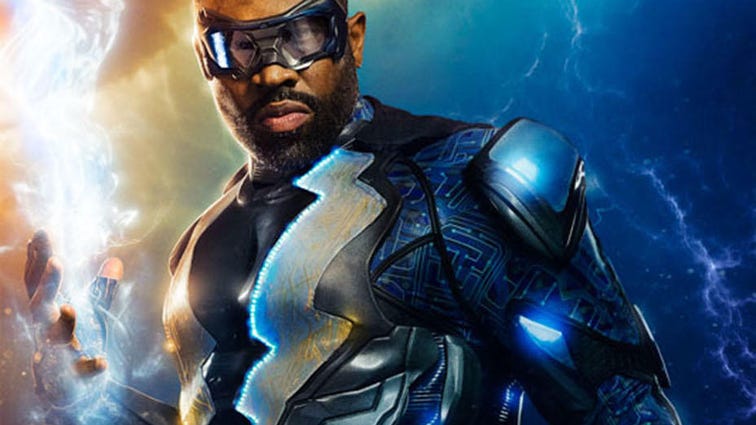

CW
Black Lightning is a show about hope and love, and it’s a must-see. Take a normal guy who lives a normal life but wants to protect his family and city, and boom, you have Black Lightning. Before there was Black Panther with Chadwick Boseman, there was this show with Cress Williams, and it was encouraging to see Black superheroes on screen. The representation allowed little kids of color to believe that they, too, can be superheroes doing good in their communities.
–Arielle Burton

 \n ","topic":"","ttag":"","variant":"","viewguid":"","event":"listicle|image|37","correlationId":"","_destCat":"https:\/\/www.amazon.com\/Get-Out-Daniel-Kaluuya\/dp\/B06Y1H48K7\/ref=sr_1_1?dchild=1&keywords=Get+out&qid=1613019869&sr=8-1","productName":"Get Out","formatType":"IMAGE","location":"LIST","position":37,"sku":"","dwLinkTag":"article-body|listicle|image","selector":"#article-body #listicle-6aa2c6c4-f3c7-4ca7-8f88-eb09938f56fd .itemImage"}}” rel=”noopener nofollow” target=”_blank”>
\n ","topic":"","ttag":"","variant":"","viewguid":"","event":"listicle|image|37","correlationId":"","_destCat":"https:\/\/www.amazon.com\/Get-Out-Daniel-Kaluuya\/dp\/B06Y1H48K7\/ref=sr_1_1?dchild=1&keywords=Get+out&qid=1613019869&sr=8-1","productName":"Get Out","formatType":"IMAGE","location":"LIST","position":37,"sku":"","dwLinkTag":"article-body|listicle|image","selector":"#article-body #listicle-6aa2c6c4-f3c7-4ca7-8f88-eb09938f56fd .itemImage"}}” rel=”noopener nofollow” target=”_blank”>
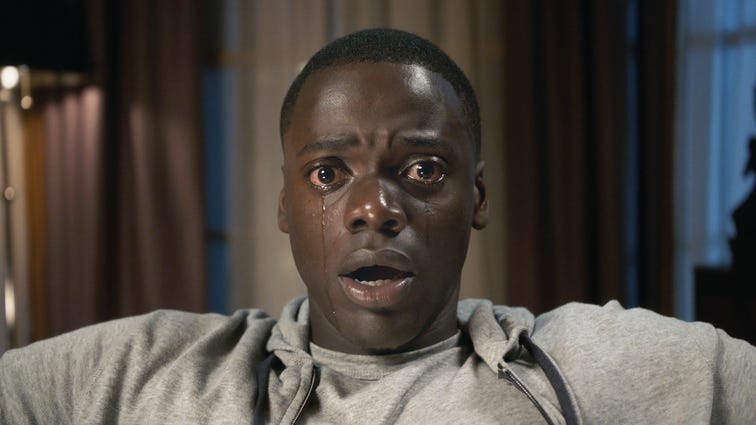

Universal Pictures
Get Out is the modern horror movie, the perfect coming together of horror, comedy and satire on racism. The setup to the punch line — or in horror’s case, the jump scare — takes exact timing. As one half of comedy duo Key & Peele, Jordan Peele is extremely well-equipped to achieve both. His directorial debut has a scarily loaded setup: a young black man (Daniel Kaluuya) meets his white girlfriend’s (Alison Williams) middle-class liberal parents. Their comments about how fine they are with their daughter’s boyfriend are comedy gold… with a delayed squirm. Peele’s exciting new voice brought horror, laughs and deeply unsettling self-reflection.
–Jennifer Bisset

 \n ","topic":"","ttag":"","variant":"","viewguid":"","event":"listicle|image|38","correlationId":"","_destCat":"https:\/\/www.amazon.com\/Spider-Man-Into-Spider-Verse-Liev-Schreiber\/dp\/B07L9YC6CW\/","productName":"Spider-Man: Into the Spider-Verse","formatType":"IMAGE","location":"LIST","position":38,"sku":"","dwLinkTag":"article-body|listicle|image","selector":"#article-body #listicle-0c54d29a-ca15-4e41-b698-57daf67403e2 .itemImage"}}” rel=”noopener nofollow” target=”_blank”>
\n ","topic":"","ttag":"","variant":"","viewguid":"","event":"listicle|image|38","correlationId":"","_destCat":"https:\/\/www.amazon.com\/Spider-Man-Into-Spider-Verse-Liev-Schreiber\/dp\/B07L9YC6CW\/","productName":"Spider-Man: Into the Spider-Verse","formatType":"IMAGE","location":"LIST","position":38,"sku":"","dwLinkTag":"article-body|listicle|image","selector":"#article-body #listicle-0c54d29a-ca15-4e41-b698-57daf67403e2 .itemImage"}}” rel=”noopener nofollow” target=”_blank”>
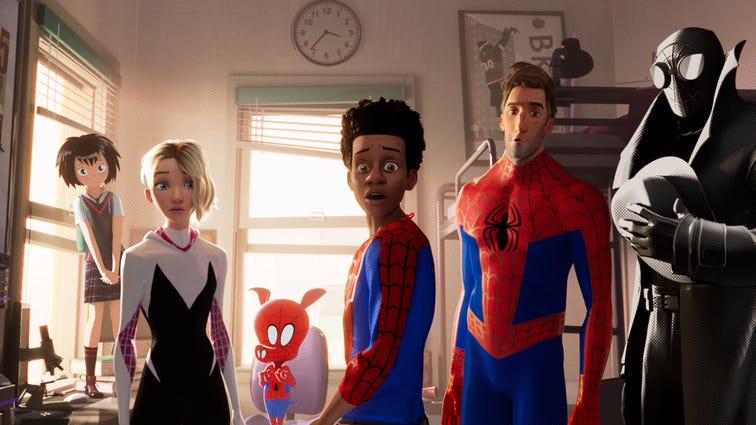

Sony Pictures Animation
There was no question which movie would win best animated feature at the 2018 Oscars. Into the Spider-Verse stole hearts by boldly ignoring the fact we’ve had three cinematic Peter Parkers and introducing five more. They stem from Marvel’s multiverse, wisely made less complicated by producers Phil Lord and Christopher Miller, who focus on Miles Morales (Shameik Moore), the graffiti artist, hip-hop-appreciating version of Spidey. Morales teams up with the versions from other universes — including a bizarre and completely hilarious cartoon pig known as Peter Porker — to fight supervillain Kingpin.
Over 140 animators combined computer animation with a hand-drawn style to mimic a comic book look. Inventive visuals, fresh storytelling and embracing the comic books’ wackiness helped make the first nonwhite Spider-Man one of the best.
–Jennifer Bisset
